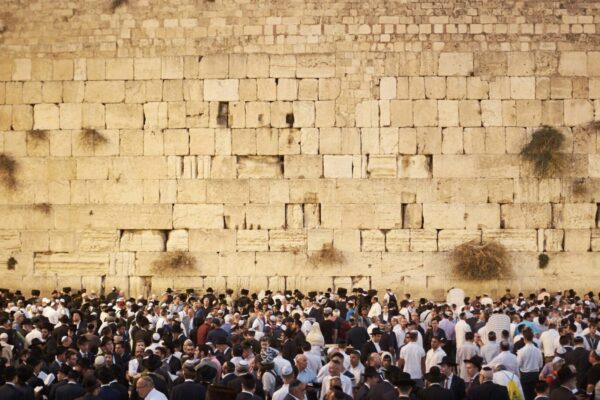An inspiring story and an important reminder not to paint everyone with the same brush! Muslims should know more than most about what it’s like to be generalised.
An inspiring story and an important reminder not to paint everyone with the same brush! Muslims should know more than most about what it’s like to be generalised.
Studies say that no matter where you were born, after living an average of five years in another country, you are susceptible to the same diseases as the native population. I lived in the Middle East for five years and in the Muslim American community for fourteen. I was not raised a Muslim and I’m not an Arab, but after nineteen years, I picked up some interesting habits.
Last summer, my children’s school received extra funding for tutors over the summer break. The kids weren’t thrilled, but I was. The perspective tutor called and we chatted about the children’s needs. She told me her brother’s names is Yousuf, just like my son. She had an accent, but I couldn’t place it and I didn’t want to ask her where she was from. It’s wasn’t important. I figured she was from a Muslim country and I’d find out when she came to my house.
The children waited for her and we watched as she parked and walked down the street to our house. She was a thin woman, wearing a scarf on her head, tied behind her head like a Russian peasant. I tried to place her look and I thought, maybe she’s Bosnian.
We sat and chatted for a few minutes and she again told me joyfully that her brother’s name is Yousuf. So I asked her where she was from.
“I was born in Israel,” she replied.
My heart sank. I looked at her scarf, the way she wore it and then back at her face. She must be an Orthodox Jew. I could feel my face rearrange itself into a frown and the color drained from my face. I was embarrassed by the thought that she might notice the physical change, but her demeanor didn’t change at all. I tried to force a smile, but figured it would contort my face into an even more bizarre expression, so I just gave up.
My son entered the room before I was able to recover and she hugged him. My eyes opened wide, and I half expected her to harm him. Images of bleeding Palestinian children and angry Israeli settlers filled my head. My eyes darted back and forth, looking for an escape and to see if my mother had any of the Palestinian flags out.
I wondered, would she hurt him? I didn’t want to leave them alone, but I slowly turned to walk up the stairs. Why was I thinking this way? As I took each step, I tried to talk sense to myself.
I don’t even know her and I’m judging her. Step.
Don’t jump to conclusions. Step.
Women in Black are Israeli. Step.
This continued until I reached the top of the stairs, at which point I spent two hours debating with myself. Am I supporting the occupation? Am I doing a bad thing? Should I go downstairs and ask her to leave? How do I justify that? I have to dig deeper than that for an answer to how I should behave. I look out the window and take in a deep breath, close my eyes, exhaling slowly.
What does Islam say?
I open my eyes. The answer is easy, don’t judge. Don’t be suspicious and always treat people in the best possible way. She is a guest in my house and my child’s teacher. Am I a Muslim? Do I follow my religion only when it’s convenient?
I’m calm now and just in time, the tutoring session is over.
I make my way down the stairs and my mother walks into the room. The tutor says she loves all the art on the walls and asks who the collector is. My mother starts to tell her about a Syrian Artist, Akram Abu Al Foz that I told her about.
“Anisa, show her his work. It’s absolutely stunning.”
I take out my phone and start to explain. She loves it, so I tell her about my trips to Turkey and my work with the Syrians. She asks me many questions and I answer. A few days later I receive a phone call from her. She tells me she was so inspired by the work I’m doing and would like to help. Would I mind meeting with her daughter who works at a local radio station?
I’m a bit taken aback. She wants to help me? I can barely get Arabs, Muslims or Syrians to help me and she is this Jewish-Israeli woman asking me if she can help? Then she tells me, “My parents are Syrian. We are Syrian Jews.” I am so happy I start laughing and I tell her how frustrated I’ve been, that I had decided to stop the work I was doing because I just wasn’t getting support and that I prayed a week ago and said, “Oh Allah, if this is the path you want me to continue on, you will need to send the help to my door because I will not make one more effort.”
I was so depressed and ready to give up and my prayer was answered with a test. If I had given into the common Arab/Muslim mentality that all Jews are bad, I would have lost this opportunity. She opened doors for me that I didn’t even know existed. However, the greatest gift she gave me was a renewed sense of hope and the knowledge that I was not alone. I only need to ask, with an open heart and mind, and help would be sent.





